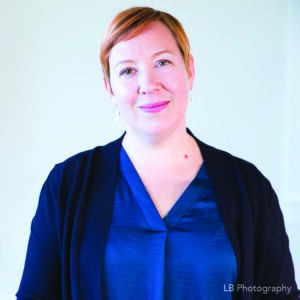Not answering questions truthfully may be a less stressful response for both LGBT+ adult children and their affected parents
by Sarah Rutledge Fischer
Dear Allie,
I’m a gay man in my 60s and recently moved home to help care for my aging mother. I knew that helping my mother through her final years would be difficult, but I didn’t expect it to cut so deeply into my own sense of self. You see, my mother has dementia and doesn’t remember that I’m gay. Every day she asks if I’m seeing a nice lady. When I’ve tried to explain that I’m married to a man, she becomes confused and defensive.
I feel isolated and untethered. I don’t know anyone in this city, and my husband can’t leave his job to be here with me. I have been out for decades, but caring for my mother makes me feel like a kid in a closet. Help!
Yours,
Stuck In My Mother’s Closet
Dear Stuck,
If you have ever flown on a commercial airplane, then you’ve almost certainly heard the instruction to “place the oxygen mask on yourself first before helping small children or others who may need your assistance.” It doesn’t take much imagination to apply this advice to other areas of life—you cannot care for others if you don’t first care for yourself.
Right now you are low on resources and we can find an oxygen mask or two so that you can find an oxygen mask or two so that you can continue the loving and selfless work of caring for your mother in her final years.
First, let’s address your mother’s persistent desire that you find a nice lady. Most experts advise against contradicting the misconceptions of someone with dementia, and when you’ve tried to correct your mother about your sexuality, you’ve seen the confusion and frustration it can cause. Her dementia will bring her back to this misconception no matter how many times you correct her, so it may be kindest to play into her reality and focus on the big picture instead of the offensive details.
Consider whether you could translate “nice lady” to “nice person” and answer her question accordingly. Could you tell her all the details of your courtship with and marriage to your husband without mentioning that he is a he? If so, bringing a bit of your real life into your conversations with your mother might leave you feeling less untethered. And if not — if your history with your mother makes misrepresenting your relationship too painful, find an off-handed way to acknowledge her question and change the subject — ”Oh mom, you’re the only lady for me. Now let’s figure out lunch.”
Another way to shake that closeted feeling is to connect with the local LGBT community. Even if your stay in your mother’s city is temporary, find the local community organization, and reach out. As our country’s openly LGBT population ages, more and more community organizations have special programs set up for seniors, and some of those seniors may be in the same boat. Even if you can’t make it to the local LGBT senior coffee klatch, many organizations have set up “Buddy” programs that pair socially or physically isolated LGBT people with a phone buddy. Adding just one person to your week who knows and respects your identity as a gay man could make a big difference in how isolated you feel.
Finally, it might also be time to seek out some resources for yourself as a caregiver. Caregivers—especially those caring for loved ones with Alzheimer’s or dementia—face special challenges and have special needs. You can find online resources at sageusa.org, an LGBT website loaded with resources for LGBT seniors. Also, most cities have organizations that offer support groups and resources for caregivers.
It may feel hard to prioritize yourself when your mother is so needy, but remember that you must put your oxygen mask on first. It is the only way that everyone can survive.
That should get you started.
Your friend,
Allie
Alzheimer’s is the most common cause of dementia, a general term for memory loss and other cognitive abilities serious enough to interfere with daily life. Alzheimer’s accounts for about 60-80% of dementia cases.
What are the stages of Alzheimer’s disease? (from allaboutseniors.org/discover-alzheimers-disease)
Mild (early-stage)
In the early stage, a person may still function independently. While he or she may still go about their normal day-to-day activities, the person may feel as if he or she is having memory lapses.
Common difficulties include:
• Problems thinking of the right name or work to call something
• Trouble remembering names when introduced to new people
• Difficulty performing tasks in social or work settings
• Forgetting information that was just read or learned
• Losing or misplacing objects
• Increasing trouble with planning or organizing
Moderate (middle-state)
The middle stage of Alzheimer’s is typically the longest stage of the disease. As the disease progresses, the level of care the person needs will increase.
Noticeable symptoms include:
• Forgetting one’s own history
• Changes in mood and feelings of withdrawal
• Inability to recall long-known information like address or telephone number
• Confusion about place and day
• Needing help with dressing and bathing
• Changes in sleep
• Increased risk of wandering or getting lost
• Personality and behavior changes
Severe (late-stage)
In the final stage of Alzheimer’s disease, a person will lose his or her ability to respond to the environment and control movement. At this stage, individuals will require full-time care and become vulnerable to infections, especially pneumonia.
Other symptoms include:
• Becoming unaware of surroundings
• Experiencing changes in physical abilities, eventually being unable to swallow
• Difficulty communicating
• The Alzheimer’s Association is a great resource for information on all types of dementia, including Alzheimer’s disease.
AVAILABLE CARE IN MIDDLE TENNESSEE


